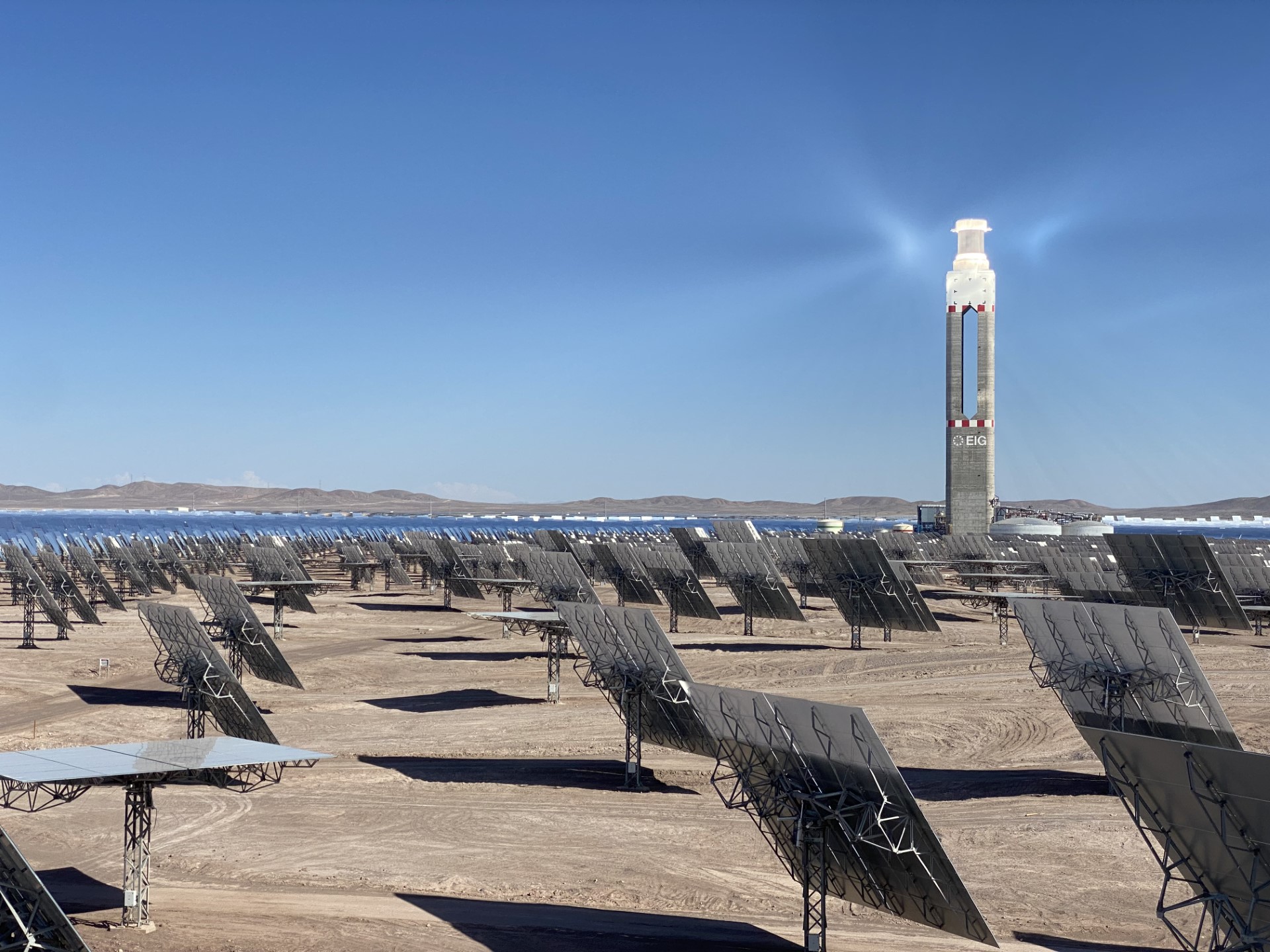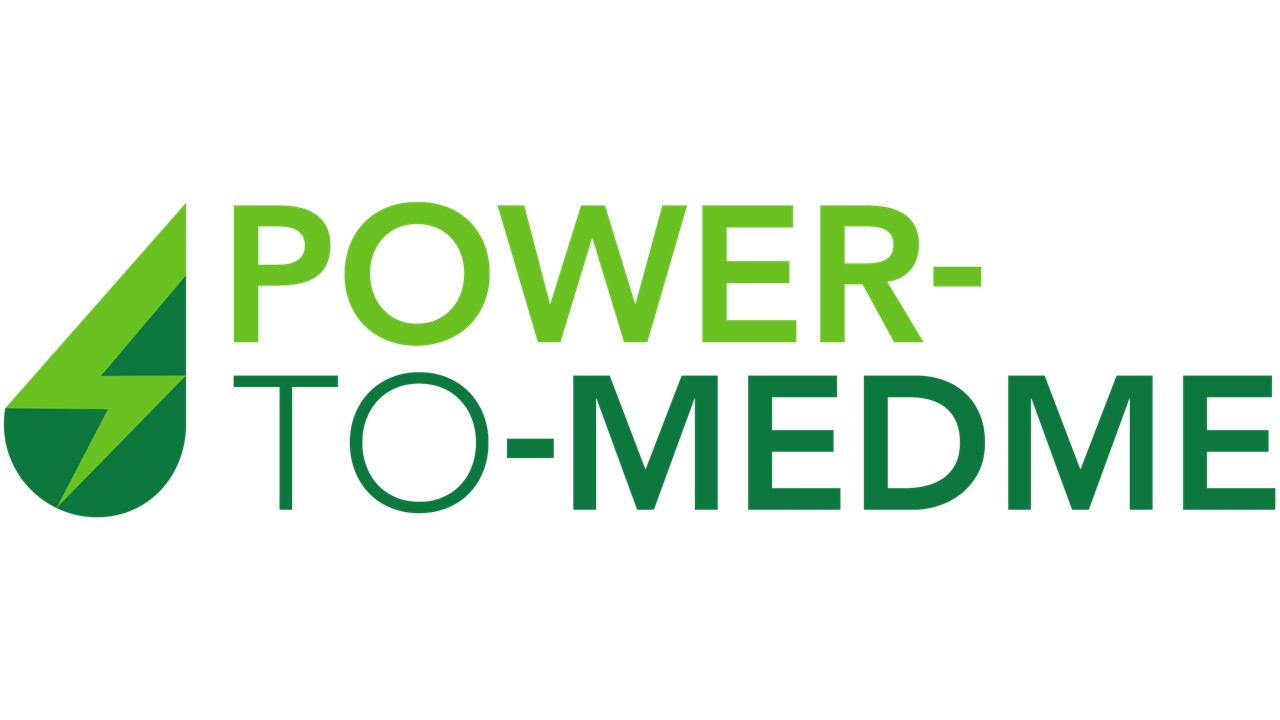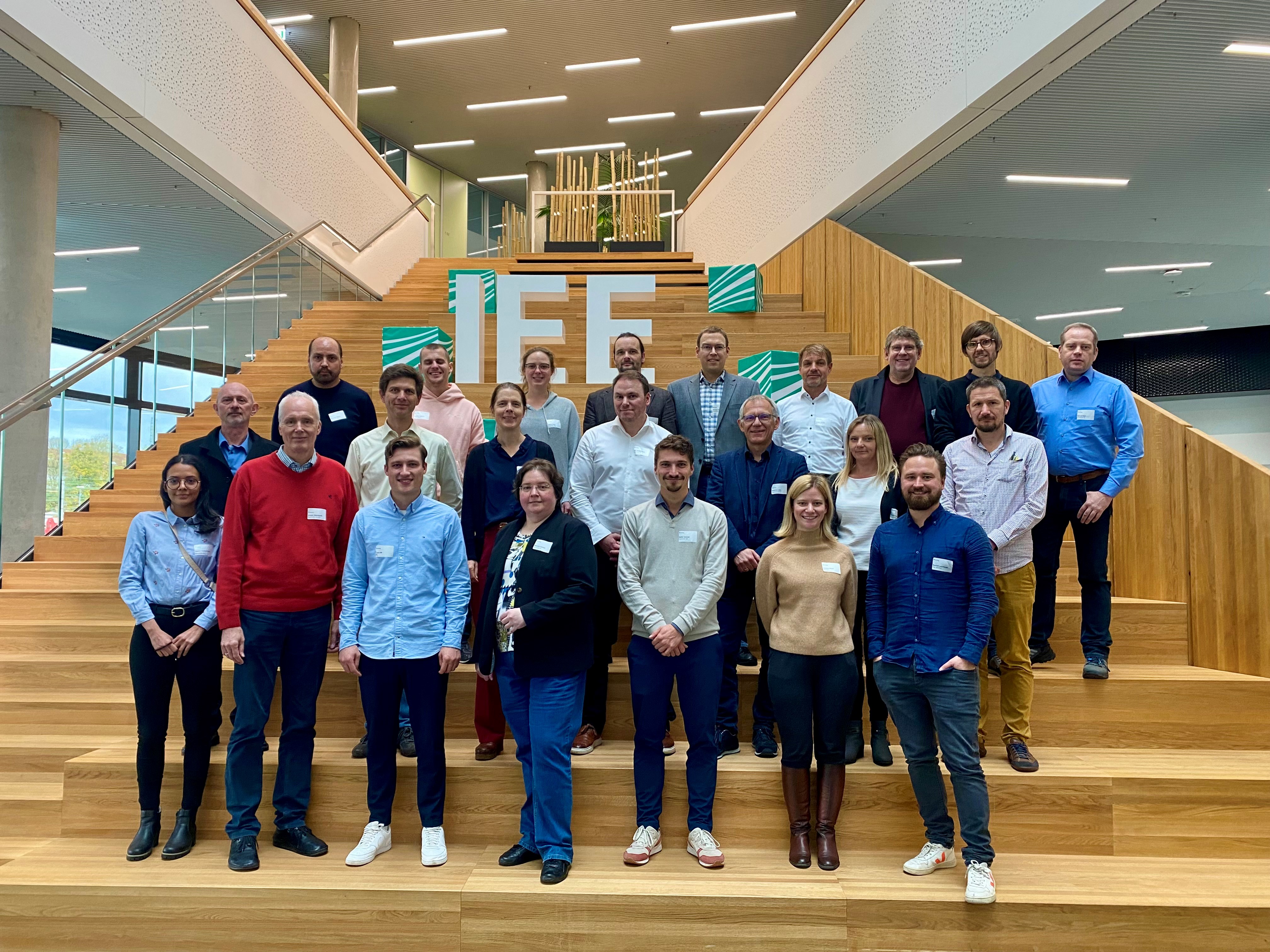Together with its partners, Fraunhofer Institute for Energy Economics and Energy System Technology IEE is paving the way for the establishment of large-scale production of green hydrogen and its downstream products in Chile. The project’s research focuses on the production potential of hydrogen and liquid fuels from solar energy. In addition to technical issues, researchers are investigating the economic, logistical, and socio-economic aspects of scaling up, through which they will also support the installation of a pilot plant.
Germany expects to cover a large part of its future demand for green hydrogen and derivatives through imports. With its excellent solar potential and stable economic conditions, Chile can make an important contribution to the production of green hydrogen and derivatives – and thus also play a central role in supplying Germany with climate-friendly energy sources.
“With our accompanying research, we are making a significant contribution towards unlocking Chile’s potential for the production of CO2-neutral energy sources. We are conducting research along the entire value chain for the production of PtX products and are not only optimizing the production process chain, but also evaluating possible local and international sales markets and business models,” explains project manager Dr. Ramona Schröer from Fraunhofer IEE.
The coordination of this research project “Power-to-MEDME-FuE” will be carried out by Fraunhofer IEE. Other Fraunhofer Institutes such as ISE, IMM, ISC/HTL, IAP, IKTS and Fraunhofer Chile are also collaborating on the project, along with the Chair of Thermodynamics of Mobile Energy Conversion Systems at RWTH Aachen University and the RILLL Research Institute on Lifelong Learning. The project will receive a total of 11 million euros in funding from the Federal Ministry of Education and Research.
Optimizing the process chain: lower costs, greater efficiency
As part of the associated “Power-to-MEDME” investment project, Linde GmbH is planning to build a pilot plant in northern Chile that will produce green methanol or dimethyl ether (DME) in the megawatt range, depending on the market situation. Both energy sources can be used as a fuel substitute for the transportation sector and locally in the mining industry. The required electricity is supplied by a local solar thermal power plant (CSP).
In order to make production cost-effective and efficient, scientists are pursuing innovative technological approaches in addition to established processes. The researchers are also examining the entire process chain using various simulations. Among other things, a digital twin is being created for methanol and DME synthesis, which is simultaneously being used to determine the optimum technical processes.
The researchers also use the results of the simulations to evaluate the use of existing technologies and to continuously optimize the process chain. For example, for the comparison of the various industrially available electrolysis technologies. Seawater desalination is also considered, as the waste heat generated can be used there. Comprehensive techno-economic analyses, including the calculation of production costs are also conducted.
Material and substance research
Another part of the “Power-to-MEDME-FuE” project is the research on materials required for the individual steps of the process chain. For example, the development of catalysts for electrolysis.
The carbon dioxide required for methanol and DME synthesis in the pilot plant is supplied by a Chilean cement factory. A separation system is being installed to extract the CO2 from the factory’s rotary kiln. For this task, the researchers are developing a sensor and control concept that will enable efficient process monitoring.
In addition, scientists are collecting data for the design of transport logistics, with the aim of using DME and other Power-to-X fuels in Chile for export purposes as well.
Scaling requires the qualification of specialists
Another topic area is the use of the energy sources in practice. The DME produced will initially be used as a fuel in existing fleets for heavy-duty and off-road transportation. Specifically, experts are looking at the evaluation of retrofit concepts for converting vehicles to the new fuels as well as proof of their conformity with emission standards.
The assessment of the territorial, social and economic aspects of the industrial production of DME and other hydrogen derivatives in Chile is also part of “Power-to-MEDME-FuE”, as is the life cycle assessment of the production and use of DME and methanol along with the analysis of energy and raw material requirements.
Researchers are also identifying business models that enable the use of energy sources in the region. In a second step, they then carry out a technical and economic assessment of the export, aiming to scale both production capacities and the necessary infrastructure. This is coupled with an analysis of market demand for various development scenarios and sectors.
Last but not least, the research project is dedicated to establishing the necessary expertise in Chile, as there is currently still a lack of local specialists for the construction and operation of production facilities. Targeted training throughout the entire process chain is intended to ensure that sufficient experts are available for the scaling-up process.
“Ideal conditions for upscaling and export”
Fraunhofer Chile, together with the Fraunhofer Institute for Solar Energy Systems ISE and Fraunhofer IEE, was responsible for the Power-to-MEDME project idea and concept development. Project manager Lars Metkemeyer from Fraunhofer Chile sees considerable added value for the country’s development by establishing a complete value chain for new sustainable processes and technologies in Chile.
“The planned location is one of the most attractive in the world because it combines exceptional solar radiation conditions with a very well-developed infrastructure, a supplier ecosystem, connections to industrial ports and one of the world’s largest mining districts for the local use of green hydrogen and its derivatives,” says Metkemeyer.
In addition, there is institutional stability along with Chile’s ambitious strategic goal to position itself as one of the most important export nations for green hydrogen.
“These conditions create ideal circumstances for the subsequent scale-up and establishment of an export route to Germany and Europe,” says the Fraunhofer researcher.
About Fraunhofer IEE
The Fraunhofer Institute for Energy Economics and Energy System Technology IEE in Kassel conducts research on the transformation of energy systems. It develops solutions for technical and economic challenges in order to further reduce the costs of using renewable energies, to secure the supply despite volatile generation, to ensure grid stability at a high level and to lead the energy transition to economic success.
About Fraunhofer ISE
The Fraunhofer Institute for Solar Energy Systems ISE in Freiburg is the largest solar research institute in Europe. Approximately 1,400 employees work towards a sustainable, economical, safe and socially just energy supply system based on renewable energies. We contribute to this with our research focused on energy supply, energy distribution, energy storage and energy use.
About Fraunhofer IAP
At the Fraunhofer IAP, iridium-reduced nanoscale catalysts are developed and tested for efficiency and stability. These more cost-effective catalysts are used in water electrolysis at the beginning of the “Power-to-MEDME” process chain and ensure that green hydrogen is reliably provided for methanol and DME synthesis.
About Fraunhofer IKTS
The Fraunhofer Institute for Ceramic Technologies and Systems IKTS conducts application-oriented research into high-performance ceramics, from materials and manufacturing processes to pilot systems. The portfolio is supplemented by expertise in materials diagnostics and testing. Research focuses on sustainable and economical solutions for resource conservation, energy transition and digitalization.
About Fraunhofer IMM
Fraunhofer IMM is made up of the divisions Chemistry, Energy and Diagnostics. Our Division Energy focuses on the mobile and decentralized hydrogen supply to provide sustainable solutions. Our developments are based on the use of microstructure reactors and the synthesis of highly active catalysts. Furthermore, we offer system development and process intensification.
About Fraunhofer ISC
The Fraunhofer Institute for Silicate Research ISC is one of the leading R&D centers for material-based research and development focused on resource efficiency, energy, health, environmental and climate protection. The central R&D topic of its Center for High Temperature Materials and Design HTL is efficient thermal processes. In this respect, the HTL offers consulting, component and process development, sampling, measurements and special equipment. The HTL plays a leading international role in the field of high-temperature measurement processes and ceramic fibre composites.
About Fraunhofer Chile Research
Fraunhofer Chile Research is a centre for applied research, technologies for the decarbonization of industry and the integration of renewable energies into complex industrial processes. The Centre for Solar Energy Technologies (CSET) is part of the network of the network of the Fraunhofer-Gesellschaft (Germany).
About RWTH Aachen University
The Chair of Thermodynamics of Mobile Energy Conversion Systems and Center for Mobile Propulsion (CMP) at RWTH Aachen University, headed by Prof. Dr.-Ing. (USA) Stefan Pischinger, focuses on research on efficient combustion processes, alternative fuels and the improvement of engine mechanics and exhaust gas aftertreatment systems as well as research into hybrid powertrains, electromobility, mechatronic systems and fuel cell research.
About Research Institute on Lifelong Learning
The Research Institute on Lifelong Learning (RILLL) – in association with the Research Institute for the Economics of Education and Social Affairs (FiBS) – has many years of experience and scientific expertise in the field of lifelong learning as well as in strategic personnel and professional planning.
Source
Fraunhofer IEE, press release, 2023-12-20.
Supplier
FiBS Forschungsinstitut für Bildungs- und Sozialökonomie
Fraunhofer Chile Research
Fraunhofer-Institut für angewandte Polymerforschung (IAP)
Fraunhofer-Institut für Energiewirtschaft und Energiesystemtechnik IEE
Fraunhofer-Institut für Keramische Technologien und Systeme (IKTS)
Fraunhofer-Institut für Silicatforschung (ISC)
Fraunhofer-Institut für Solare Energiesysteme (ISE)
Fraunhofer-Institut ICT-IMM
Linde Group
Rheinisch-Westfälische Technische Hochschule Aachen (RWTH)
Share
Renewable Carbon News – Daily Newsletter
Subscribe to our daily email newsletter – the world's leading newsletter on renewable materials and chemicals












